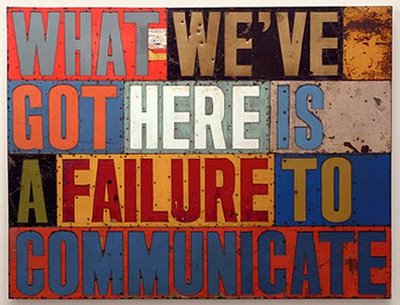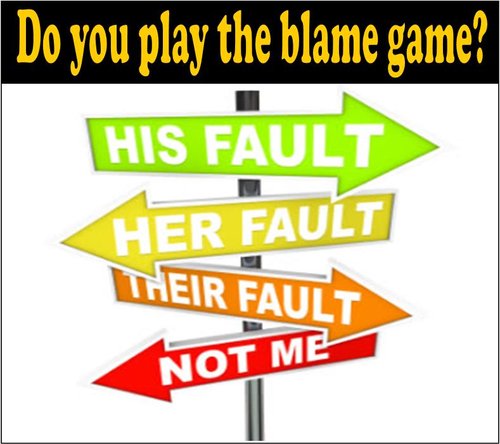
Podcast: Play in new window | Download
Subscribe: Apple Podcasts | Android | RSS
Show Agenda
Featured Presentation: How to Communicate Everything Better
You can find the full blog post on this topic at haroldarnold.com/communicationdimensions



Podcast: Play in new window | Download
Subscribe: Apple Podcasts | Android | RSS
Show Agenda
Featured Presentation: How to Communicate Everything Better
You can find the full blog post on this topic at haroldarnold.com/communicationdimensions
When working with couple, parents, families, or leaders there is one concern that is voiced far above any other. That is communication. What you hear is the well known line from the classic movie Cool Hand Luke starring Paul Newman, “what we have hear is a failure to communicate”. Communication failure indeed. There is a simple rubric to learn how to communicate everything better.

I spend a lot of time thinking about marriage—my own marriage, other people’s marriages, and cultural attitudes about marriage. I’ve learned many things on this journey. But, I’ve reached one conclusion that may sound odd possibly even startling. Marriage is NOT about love.

As it pertains to marriage, maybe Tina Turner’s song title “ What’s Love Got to Do With It?” captures the point best. The answer as it pertains to marriage is mostly “very little”.
Many centuries ago, Virgil, the greatest Roman poet wrote “Love conquers all things, so we too shall yield to love.” Was Virgil ever married? Nope.
My wife and I speak around the country on growing a successful marriage using my Marriage ROCKS model. I’ve read countless books on the topic of marriage. I’ve counseled many couples on how to move their marriages to a better level. My wife and I lead the marriage enrichment ministry at the local church that we attend. I’ve lead national marriage initiatives. I speak to community marriage initiatives—as I’ll be doing later this month in Atlanta. So, for me, there is no question that helping married couples discover one another and God in their relationship is part of my DNA.
Here’s how the process unfolds…
Two people fall in love. The romantic fervor is intoxicating. They feel awesome—on top of the world. Their bond is inseparable, at least that’s how they feel. They want to experience that forever. At some point, many of these couples decide that they should marry and spend the rest of their lives together to have nonstop access to this fountain of bliss.
It all sounds so good until…

Podcast: Play in new window | Download
Subscribe: Apple Podcasts | Android | RSS
In my time working with couples, I’ve observed what tends to be the key difference between marriages that are able to thrive and those that fail to do so. Yes, there are certainly many factors that go into a successful marriage. Ultimately, however, it usually comes down to whether each individual is able to accept their own part in whatever conflict exists or whether one can only see the other’s faults. I call this the “blame game”.

To illustrate how this blame game works and the keys to move beyond it, I’d like to present the example of Jim and Irene–a fictitious composite representing many couples with whom I’ve worked. My hope is that this example provides some clues for all of us as we each deal with some variation of the blame game.
Meet Jim and Irene.
Jim and Irene sat at opposite ends of my couch, as far apart as possible. The tension between them so charged the room that I knew we were in for a rough ride even before this first session began. After some small talk, Irene dove right into the reason for their visit: “No matter what I do or how hard I try, it is never good enough for him. I’m sick of trying anything anymore.”
Jim quickly retorted, “Funny, I feel the same way.”
Sadly, Jim and Irene seemed to have only two things in common: Each believed their own negative behavior was a justified response to provocation by the other, and both expressed unhappiness with the marriage.
Jim and Irene each had important perspectives on their relationship, and what they described was actually a very common negative pattern of interaction. The details of that pattern are not nearly as important as the manner in which it was described to me, though.
Irene explained in detail what Jim was doing wrong in the marriage, while Jim described with equal competence just how Irene was failing him.
Have you ever experienced this spin cycle in your own relationships? It seems like you keep rehashing the same issues over and over. Yet, you get nowhere.
Of course, the basic issue here is that no one is listening. Frankly, neither one cares what the other is saying. Jim and Irene were demonstrating mastery of the “blame game.”
They were just getting warmed up with their finger pointing when I interrupted them with a challenge: “Why do you look at the speck of sawdust in your spouse’s eye and pay no attention to the plank in your own eye?”